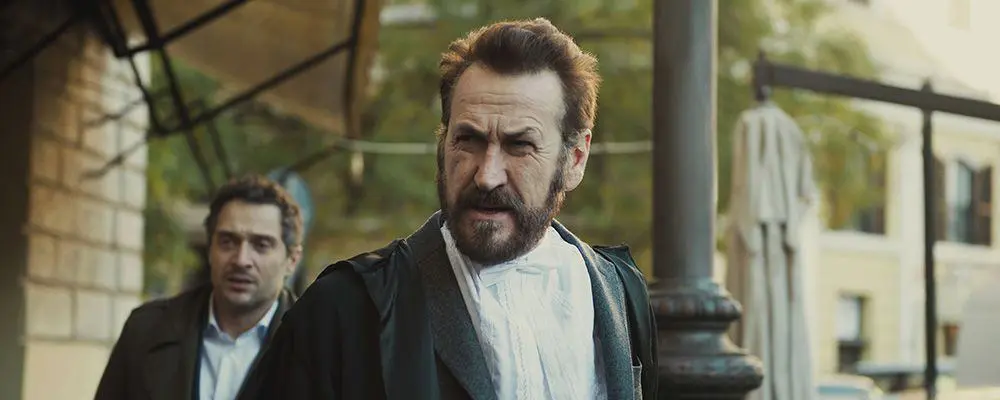Summary
A dull and toothless Italian drama, Forgive Us Our Debts has a lot to say but very little worth listening to.
Early on in Forgive Us Our Debts, a man who is apparently a professor (Jerzy Stuhr) uses a pool table and an analogy about a cauliflower to explain the fractal nature of the Italian political-economic system. The point, such as I could ascertain one, is that the system only mimics existing, successful frameworks, over and over again, each a small but identical representation of the last.
Then, using cigarette packets and pool balls that he has given labels like “Germany” and “Greece”, he makes another example about how you can’t attack entrenched industries directly, but only by bouncing off a felt cushion first. At least, that’s how I interpreted it – I confess the point wasn’t entirely clear.
This is one of several opinions that Forgive Us Our Debts has to offer on complex socioeconomic systems, none of which it seems to properly understand or care about explaining. The film’s plot concerns a newly-unemployed man, Guido (Claudio Santamaria), offering to work for free as a debt collector in order to pay off his creditors – personal compromise in the face of financial strife being a small-scale mirror of national compromise in the face of financial strife that the film is ultimately more interested in commenting upon. There’s that cauliflower, I suppose.
Guido is given an initially-reluctant thumb-snapping tutor in the form of Franco (Marco Giallini), a cynical old-hand in the loan shark business who seems to relish shaking people down for money they don’t have in order to clear debts they were often cajoled into in the first place. He wears smart suits with pockets full of money that he stuffs into the hands of wait staff to persuade them to deliver food to his table in a self-service restaurant.
He also looks down on Guido’s pointedly humble backstory, not because he was unjustly made redundant from his cushy IT job, but because he had a cushy IT job – a “crap job” – in the first place. By the way, that word, “redundant”, is only the polite way of being fired if you don’t know the definition of the word, in which case it’s a profound – though accurate – insult.
Franco won’t stand for such insults. He doesn’t need a crap job because his current job means that he “doesn’t take any crap.” He explicitly refuses to refer to those who owe money as people – they’re simply “debtors”.
Despite attempts to humanise him, at work he’s such a cartoonishly unpleasant fellow that he slots right into Forgive Us Our Debts, which is populated by nothing but one-note archetypes, from its put-upon hangdog hero, to the pool-playing professor who wants, I kid you not, to retire to a remote village in China where money doesn’t exist, and the charming lady at a local bar (Flonja Kodheli) with whom Guido shares his behind-on-the-rent anxieties.

(Credit: Netflix)
You can’t say that Forgive Us Our Debts doesn’t highlight an important and prevalent problem, or that it doesn’t rightly vilify a predatory industry, even if it does make lacklustre attempts to differentiate between those who have the money and won’t pay and those who don’t have the money and can’t pay.
But when I tell you that Guido must grapple with his own conscience as he allows himself to more fully embrace the tax-collection lifestyle, you’ll know exactly what kind of film we’re dealing with here, which is one that deploys classical music over montages of Guido practising his technique and noisily accosting troublesome debtors in front of their well-off associates.
Co-written and directed by Antonio Morabito, Forgive Us Our Debts is an admittedly nicely-shot but nonetheless toothless film that sprinkles anti-establishment commonplaces in the mouths of archetypal characters who’re difficult to be interested in, much less root for, despite being performed admirably by talented actors. It’s a dull and predictable bit of work that only ever becomes entertaining when it takes itself so seriously that you can’t help but laugh at it.




